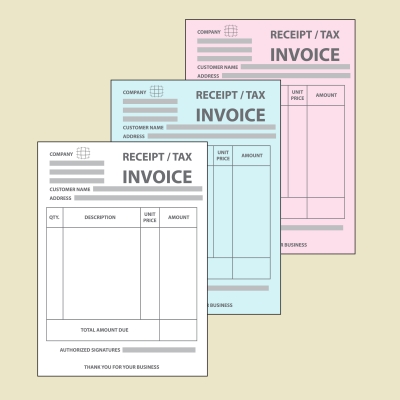
The Top Three Things You should Do to have a Better Invoicing System
It doesn’t really matter if your business is involved in sending out invoices or if you are the one who is regularly receiving invoices. What matters is to be more organised with your invoicing, as well as making sure that you are keeping proper track of all these pieces of paper that are vital to an organised accounting and financial process.
If you are conducting your invoice process through an online system, you need to be aware of any fraudulent invoices that may come your way. Somewhere like Abnormal Security can help with this. You don’t want the security of your business to be affected due to something like this, so make sure that you implement the proper measures.
Furthermore, if you don’t have a good invoicing system, whether it’s for accounts receivables or accounts payables, you will eventually find your records with errors (and perhaps major ones, at that). For certain high-influx and complicated sectors such as healthcare, however, using NDIS invoicing software would be more effective in managing invoices and auto-updating prices and billing accordingly. But for businesses that are less likely to have such specific needs, here are the top three things you could do to have a better invoicing system.
Learn how to take advantage of spreadsheets
By learning how to take advantage of spreadsheets, you are well on your way to having a better invoicing system. You can use both computer and paper spreadsheets, although in today’s digital age, computer spreadsheets are often more feasible. To organise your spreadsheets, you have a few options. You can choose to group invoices for the month in one single spreadsheet, or you can group invoices for every two weeks. The choice is yours, as long as you make sure it is a system that you fully understand and can benefit from.
Keep two invoice books
Unlike spreadsheets, which you can opt to have in paper or in digital form, it would be advisable to keep two invoice books for your business – one in paper form and one by scanning accounts files into an electronic form. This way, you can have both a hard copy and a soft copy for easier and faster reference.
Proper paper invoice filing
If you would still like to keep your paper invoices, you can do so – just be more organised about it. Rather than keep it with your other files, invest in a filing cabinet solely for invoices. Make sure the invoices are arranged properly as well. You can make it more organised by arranging your invoices in such a way that they correspond to each company, a certain type or kind of invoice, or the date the invoice was made.
You can even make it better by having a separate filing cabinet or system for invoices which are still unpaid. Unpaid invoices need to be addressed, and promptly. You wouldn’t want your business to be affected by unpaid or overdue invoices, so it would also be a good idea to pay attention to how to organise this.
Keeping your invoicing system clean and efficient is not such a difficult endeavour – all you need is the right knowledge and a good amount of discipline. And if you want more expert assistance with your financial records, including your invoicing, you can certainly find the necessary help from a good accountant, like the accountants in central London from Griffin, Stone, Moscrop and Co.






